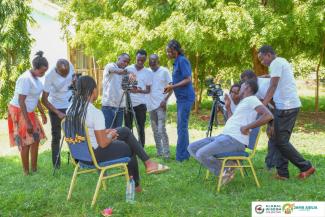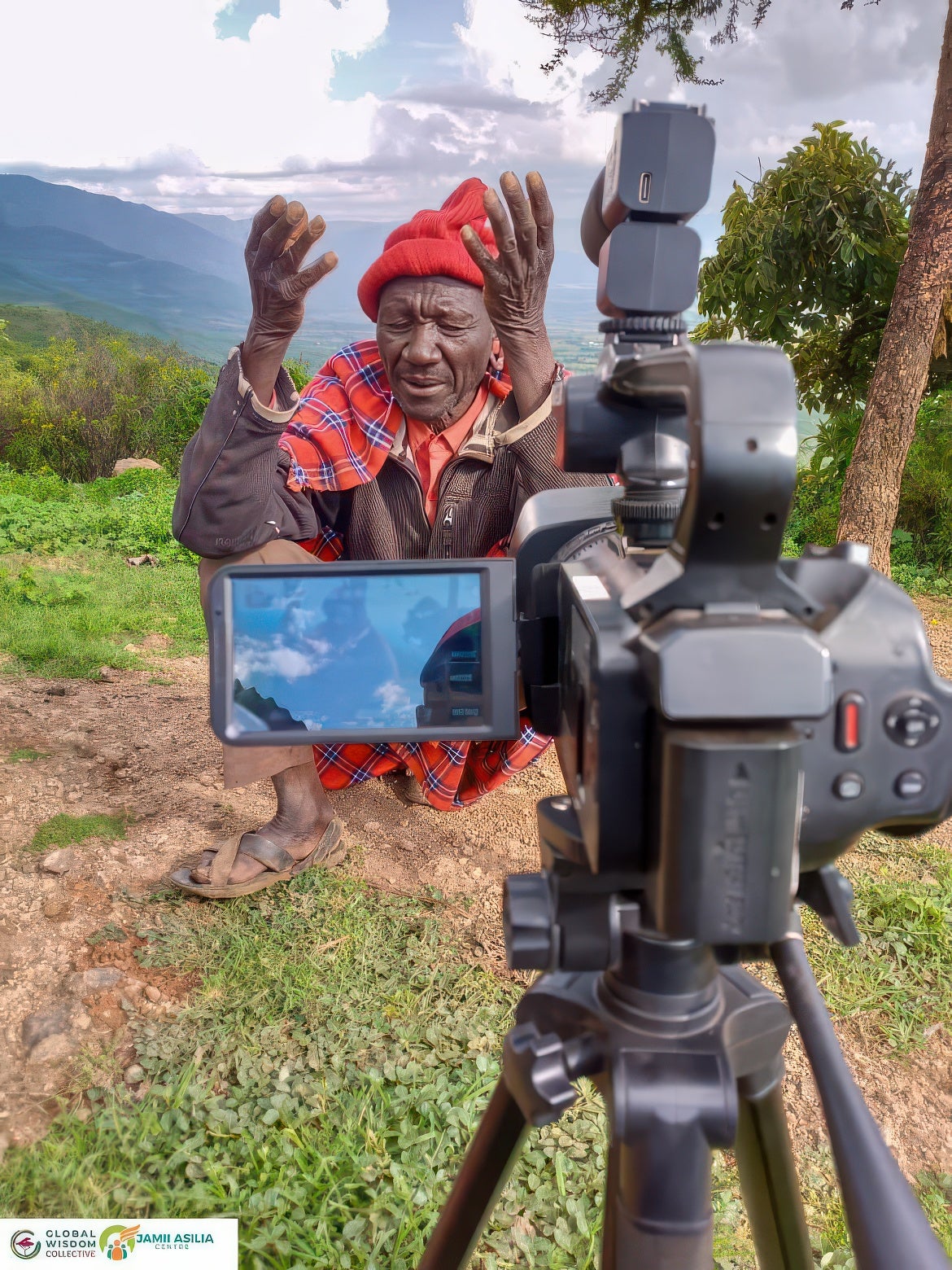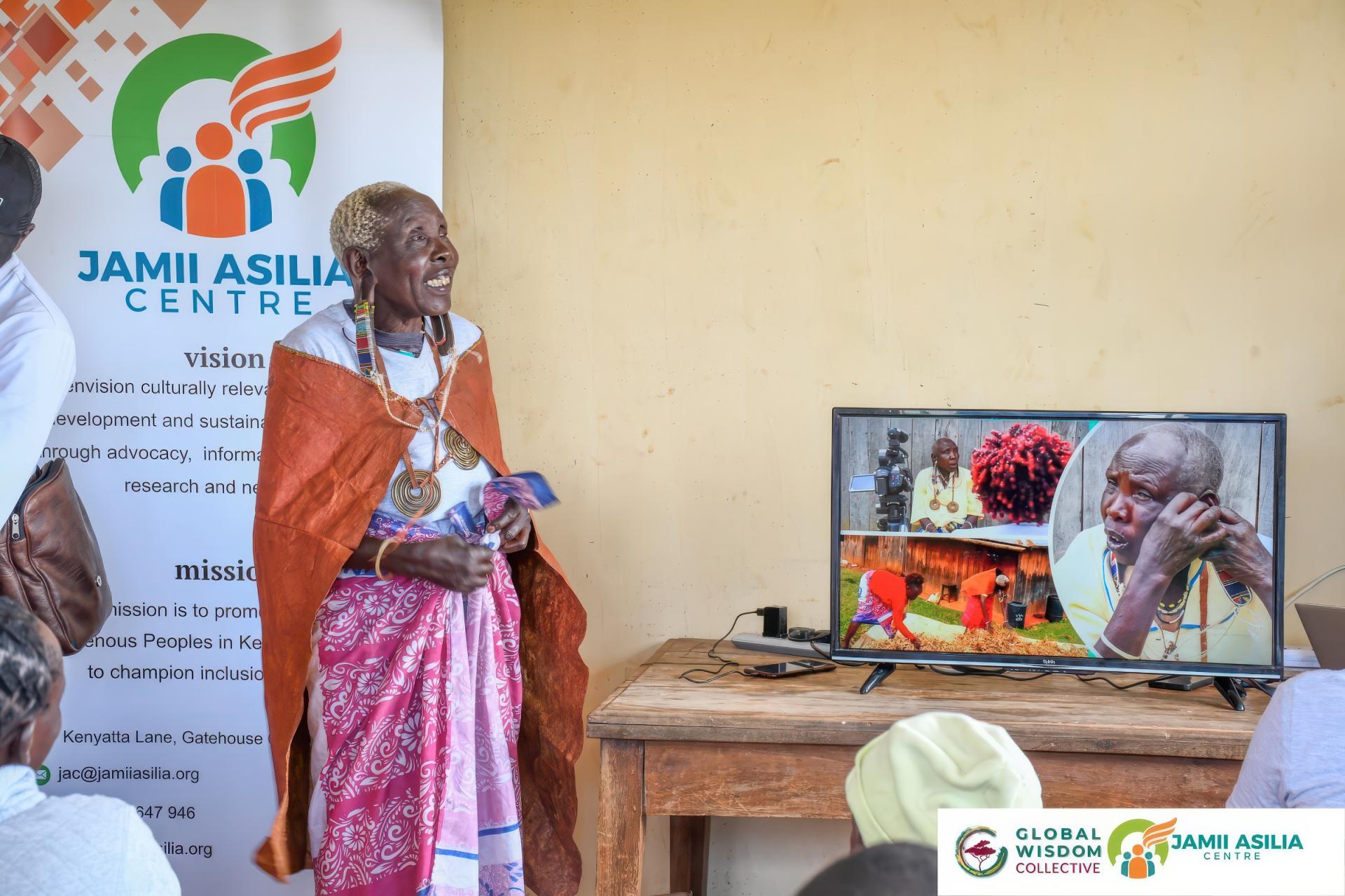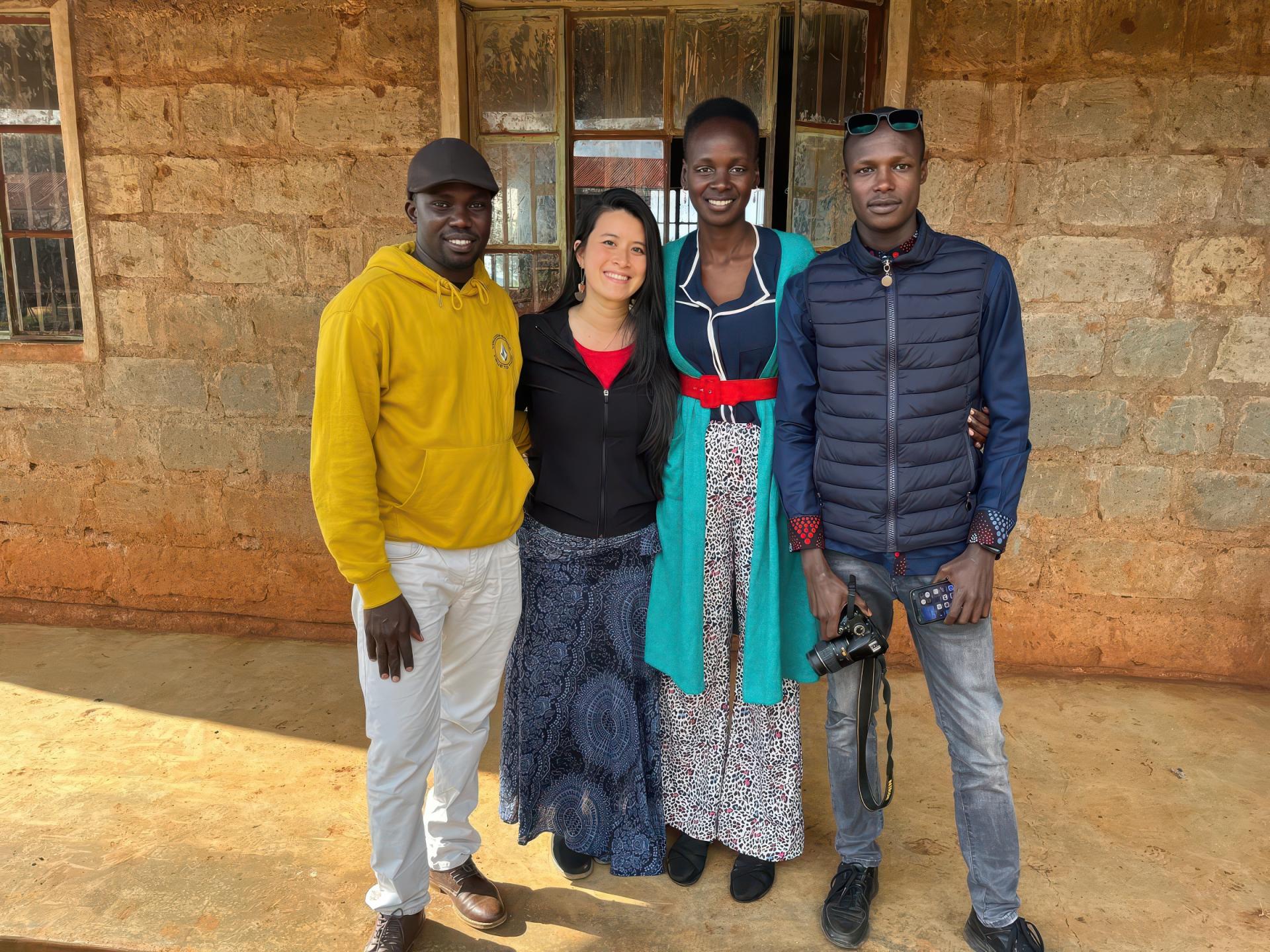
Indigenous Traditional Knowledge systems and languages are interconnected, carrying essential ecological and cultural wisdom. Our languages hold insights about ecosystems, biodiversity, and sustainable practices passed down for generations. When an Indigenous language disappears, communities— along with the entire world—lose the knowledge embedded within it. Safeguarding these knowledge systems is not only about cultural survival; it’s about utilizing timetested wisdom to address today’s environmental crises.
The grief of this loss and the urgency of climate change propelled the creation of the Global Wisdom Collective and, ultimately, the collaboration that would become the Revitalize the Roots Initiative, which was inspired by years of recording and archiving Dominica Zhu’s (Dai) traditional medicine wisdom of her mother. Global Wisdom Collective supports and empowers Indigenous people to lead their knowledge safeguarding processes. The organization’s mission is rooted in the urgent need to protect Indigenous knowledge systems by igniting the passion of Indigenous youth to listen to and record their Elders’ stories and wisdom. We believe that Indigenous traditional ecological knowledge holds the key to a more sustainable future for Indigenous communities and the world.
As our communities are uprooted from their homelands, we face not only the loss of our physical territories but also the erosion of our languages and cultures. The disconnection from our traditional territories diminishes our capacity to pass down ecological wisdom, language, and cultural practices that have been nurtured over generations. This disruption undermines traditional lifeways, resulting in a loss of knowledge related to land stewardship, food sovereignty, and environmental balance. While implementing the Revitalize the Roots Initiative, we saw that the Torois language, spoken by the Endorois Peoples, contains climate-related Indigenous knowledge that defies translation and can never be translated, preserved, or transmitted in another language or culture. Compounding this issue is the reality that our Indigenous Elders, who hold the wisdom of generations, are passing away without anyone to protect or carry forward their knowledge. The death of Elders without the transfer of their wisdom erodes cultural continuity and threatens the survival of the community’s identity and traditional lifeways. This growing urgency, and the awareness that we are losing our Elders, propelled the work of the Revitalize the Roots Initiative. We knew that youth were leaving their ancestral lands and diaspora populations were growing, making it increasingly more challenging for youth to have the time and resources to learn from their Elders before it is too late.

Endorois Elder during the recorded intergenerational dialogues.
The Revitalize the Roots Initiative focuses on supporting Indigenous people globally to build infrastructure to protect their Indigenous knowledge systems. It is founded on recorded exchanges between Indigenous youth and their Elders, one Indigenous Nation at a time. The projects focus on connecting Indigenous youth and Elders to facilitate a critical intergenerational knowledge exchange that has enabled youth to feel confident in their Indigenous identity and for Elders to gain peace, knowing that their lives and customs have purpose. These projects also help establish frameworks and community-owned archives to record and safeguard Elders’ knowledge systems before it’s too late.
All projects are community-owned and communitydriven, beginning with open dialogues to ensure cultural integrity. All projects must uphold strict values that protect Indigenous Traditional Knowledge from exploitation, monetization, or commercialization, resisting colonial frameworks. Knowledge is recorded only with the full consent of the bearers and kept in its original Indigenous language. “While the western world looks for solutions for the climate solution ‘out there,’ we know that it is within. We must do all we can now to empower our youth to listen and protect their Elders’ wisdom,” says Zhu.
Revitalize the Roots: Bikaptorois
In 2021, through a serendipitous meeting between Global Wisdom Collective’s Founder, Zhu, and Jamii Asilia Centre founder Carson Kiburo (Endorois), the beginnings of Revitalize the Roots: Bikaptorois were born. Bonded by a shared passion and similar life experiences of recording their respective Elders and cultures from a young age, Zhu and Kiburo joined forces to establish The Revitalize the Roots Initiative under the Global Wisdom Collective. They decided to start with the Endorois Peoples in Kenya, and throughout the pandemic, they planned and built what has become the first community-wide cultural preservation effort of its kind for the Endorois Peoples. Jamii Asilia Centre was a natural fit as the implementing partner for the initiative. “Our People bless this idea. That Indigenous leaders created and led it and ran it by our People speaks volumes on the sustainability of climate justice actions and regeneration of Indigenous practices on biodiversity,” says Kiburo.
Revitalize the Roots: Bikaptorois is an Endorois-wide community initiative where youth reconnect with their Elders and preserve the ecological and cultural knowledge at risk of being lost. Through training in intergenerational dialogue skills, digital storytelling, and community engagement, young people gain technical expertise while building a deeper connection to their heritage. The project is also building a community digital archive completely retained in Torois. This work empowers them to take pride in their Indigenous identity and become stewards of their cultural and ecological heritage.
Since beginning work in 2023, the project has supported over 50 Endorois youth to be empowered in audiovisual skills such as operating a camera and making field recordings with their Elders; the project currently works with over 40 Elders. Indigenous youth were trained on their rights as Indigenous Peoples, with many of them learning for the first time that they had unique Indigenous rights guaranteed under the United Nations Declaration on the Rights of Indigenous Peoples. The project focused much of its effort on training girls, thereby challenging the gendered term “cameraman” to imply that the work can only be done by a man.

Endorois Elder acknowledging the work done during the preview session.
To date, the project has compiled over 400 hours of recordings from Elders and counting. In February 2024, the team launched a community-wide graduation that brought together members of the Endorois from near and far to celebrate the Elders who were recorded and the youth who had spent cherished time recording them. The community danced and ate and reflected on the importance of protecting their knowledge systems and the language. Later in 2024, a video preview event was held that featured the recordings the youth had created for the Elders. It was a powerful moment filled with tears and laughter as the Elders were reassured that their knowledge and wisdom would be protected by the community. The project is still ongoing, with the goal of recording more intergenerational dialogues and building a community-owned digital archive. “We are now community journalists; after gaining a lot of skills and knowledge, we hope we grow in numbers to reach more Endorois Elders,” one of the participants commented.
Indigenous youth, when connected to their roots, will carry forward the wisdom of their ancestors with a renewed sense of purpose. This connection is a source of power, fostering leadership, community involvement, and a commitment to preserving their culture and the natural world. Projects like the Revitalize the Roots Initiative focus on remembering. While the initial project served the Endorois, the hope is that this work can reach other Indigenous Peoples and serve as a model for creating a community of shared learning and resources focused on preserving Indigenous knowledge systems through our Indigenous languages.
Revitalize the Roots Initiative will continue to partner with Indigenous Nations and Indigenous-led organizations to consult and implement supportive, intergenerational knowledge-sharing infrastructures and create lasting records of Indigenous knowledge systems. The lessons learned from these communities are applicable across all cultures. We invite global partners to support our mission by advocating for revitalizing Indigenous languages and knowledge systems. This work requires collective action, and by standing in solidarity with Indigenous Peoples, we can contribute to a more sustainable, climate-resilient future for all.

Revitalize the Roots: Bikaptorois team.
Dominica Zhu (Dai) is the founding Director of Global Wisdom Collective and co-founder of Revitalize the Roots Initiative. Carson Kiburo (Endorois) is the Executive Director of Jamii Asila Centre and co-founder of Revitalize the Roots Initiative.
In 2023, the Jamii Asilia Centre and Global Wisdom Collective received a Keepers of the Earth Fund grant to digitally document the Endorois culture in Kenya.
Photos by Revitalize the Roots Initiative.
Top photo: Endorois youth being trained by the Revitalize the Roots: Bikaptorois team.
